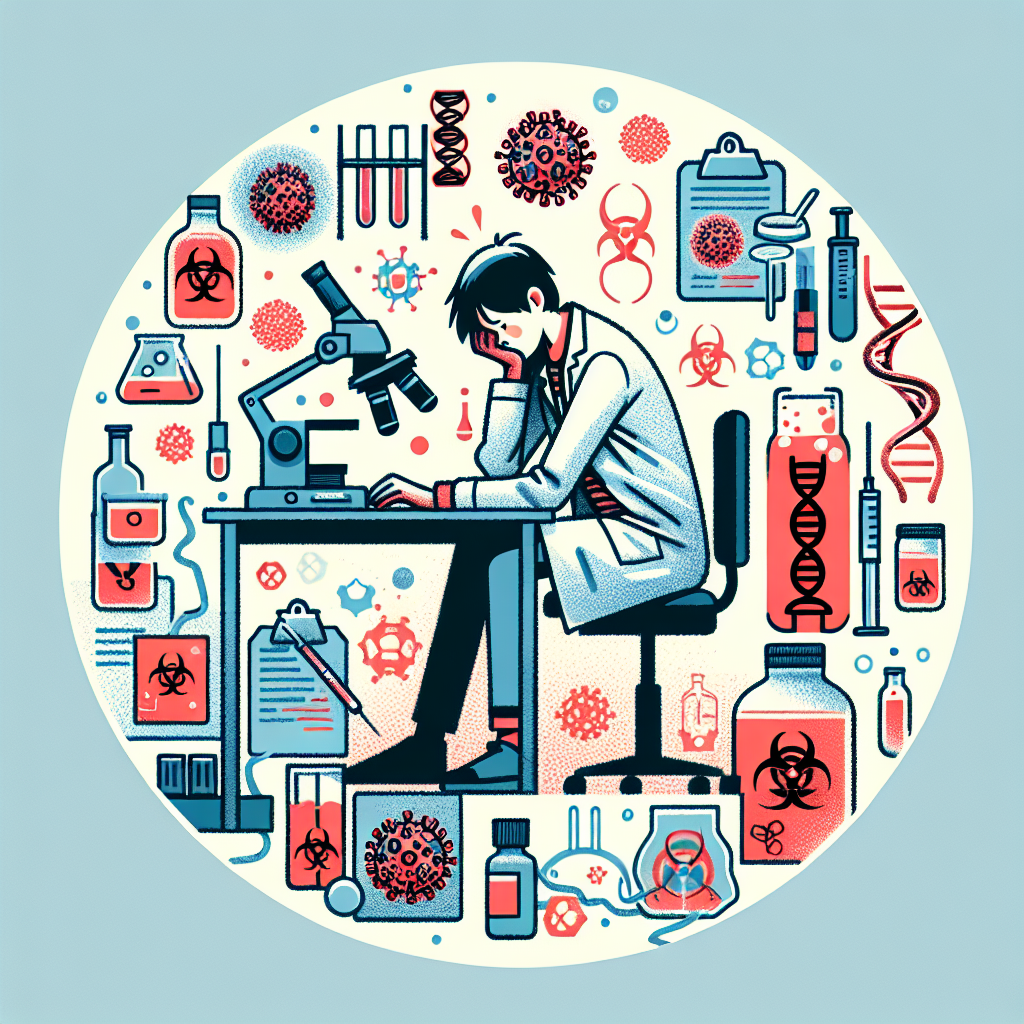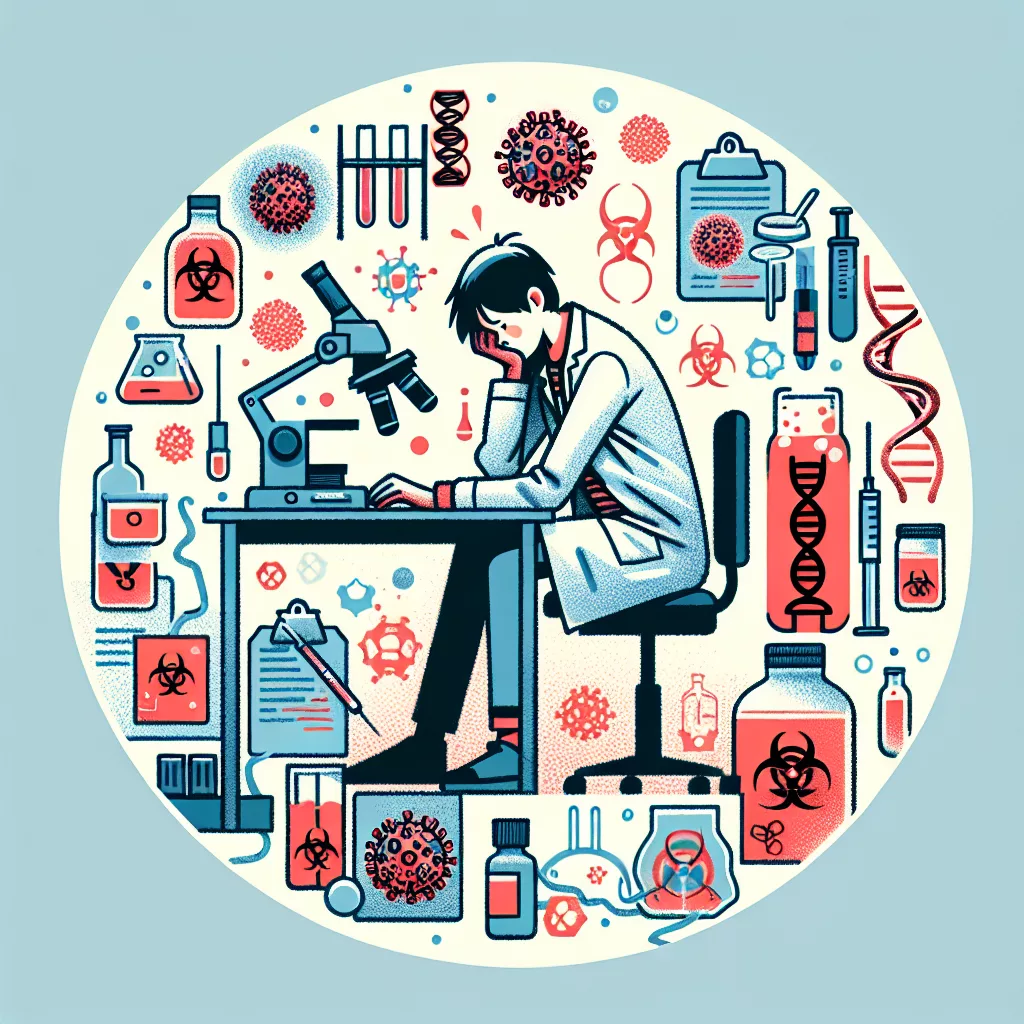The burnout risk in biotechnology researchers is notably high, driven by intense workload, constant innovation demands, and pressure to produce groundbreaking results.

- High-pressure deadlines and expectations.
- Frequent long hours in the laboratory.
- Complex project management tasks.
- Inconsistent funding for research projects.
- Pressure to publish frequently and innovatively.
- Interdisciplinary knowledge demands.
- Limited control over project outcomes and results.
Analysis of occupational burnout levels among Biotechnology Researchers indicates that the severity is Moderate.
Reasons Biotechnology Researchers burnout
According to the science to date there are key reasons people burnout at work. Here’s our top reasons why Biotechnology Researcher in the Technology category has a burnout risk of Moderate:
As a biotechnology researcher, you might encounter burnout due to several factors inherent in the profession.
Firstly, the high-pressure environment associated with the field can be overwhelming. You often work with strict deadlines, which can cause stress and anxiety. The pressure to publish results and secure funding adds an extra layer of tension.
Long working hours are another contributing factor. Experiments can require unpredictable and extended periods in the lab, disrupting work-life balance and causing fatigue. It can be challenging to find time for personal pursuits or family amidst such demands.
The uncertainty of results can be disheartening. Research often involves trial and error, and projects may not always yield the expected outcomes. This uncertainty can lead to frustration and a sense of futility if you are unable to achieve desired results over time.
Lack of career progression can also contribute to burnout. The competitive nature of the biotechnology sector may result in limited opportunities for advancement, despite hard work and dedication.
Additionally, there is often a discrepancy between expectations and reality. You may enter the field with high hopes for making significant scientific contributions but find daily tasks mundane or repetitive. This disconnect can dampen enthusiasm and lead to reduced job satisfaction.
Finally, a lack of supportive work environments can exacerbate feelings of isolation. Collaborations are essential, yet the absence of a cohesive team culture may leave you feeling unsupported and stressed.
Burnout rate data for Biotechnology Researcher/Technology
Burnout is increasingly recognized as a significant issue within the fields of biotechnology research and the wider technology industry. Various studies highlight its prevalence, attributing it often to high work demands, and long hours, coupled with limited job resources and support. An analysis has shown that many researchers in biotechnology experience burnout as a result of the pressure to publish results and secure funding.
Your concerns about these challenges are valid, as they have been corroborated by several research findings. One reliable source, the Stanford Medicine WellMD Center, emphasizes the need to tackle the root causes of burnout within scientific roles (https://wellmd.stanford.edu). In addition, an article from Nature discusses the impact of work-life balance on burnout rates in scientific careers (https://www.nature.com/articles/d41586-018-02723-8). These resources provide you with insight into the growing awareness of burnout and its implications for biotechnology researchers.
Do you have experience of Burnout as a Biotechnology Researcher or in Technology?
Share your story about Biotechnology Researcher burnout on our share your story page.
Burnout in Technology
Career Burnout Rates > Burnout in Technology > Biotechnology Researcher Burnout


